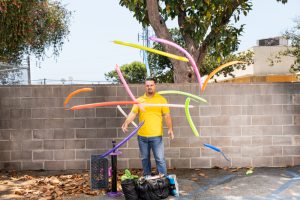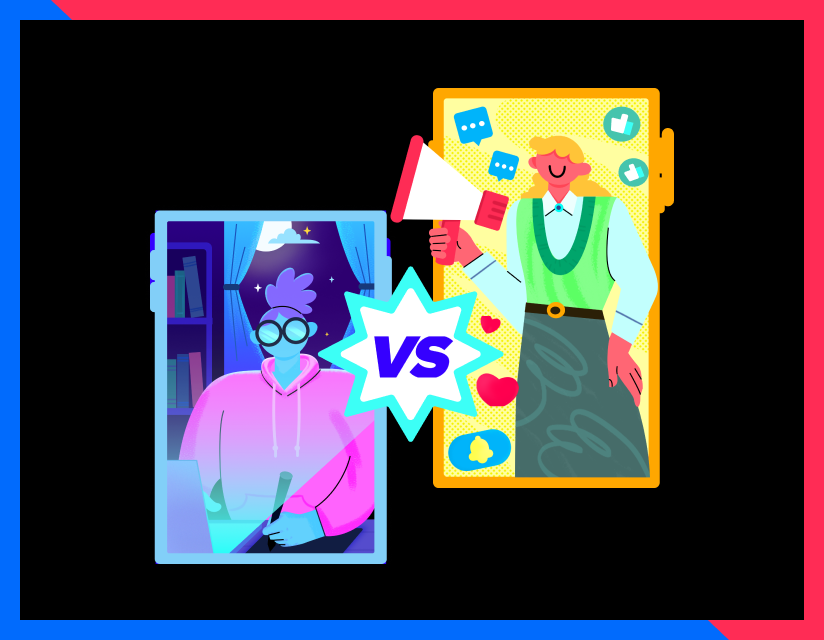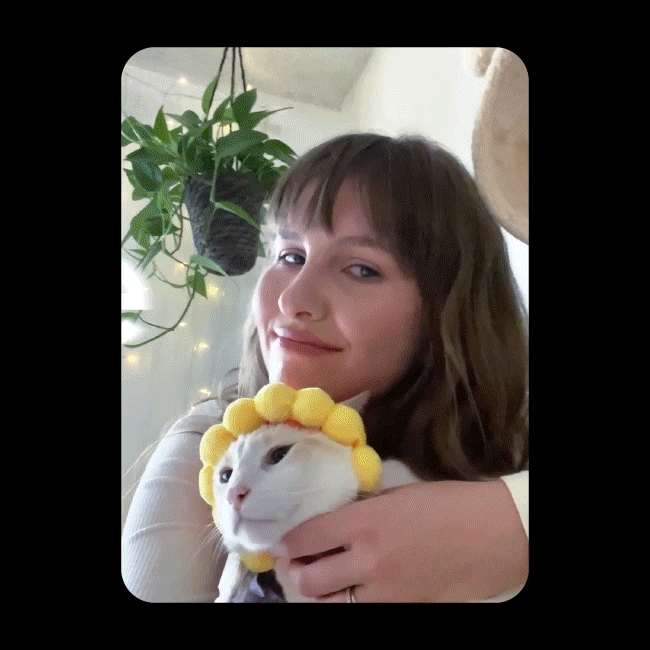Influencer marketing is not new
For many brands, influencer marketing might sound like a relatively new marketing tactic, brought about by today's ever-present social media landscape. But did you know that influencer marketing actually goes back to at least a century?
As early as the 1940's, brands have been leveraging popular personalities to promote their business. Think about TV and radio commercials, print ads and billboards that featured celebrity endorsements. These are essentially forms of influencer marketing too!

How social media changed the game
The emergence of social media leveled the playing field. Suddenly, you don't have to be a famous actor, athlete or musician to be considered an influencer. Today, bloggers, serial travelers, gamers, home cooks and stay-at-home moms can amass millions of followers who engage with their content. The more followers an influencer had, the wider their “pyramid of influence" becomes.
This influence model was flipped yet again with the emergence of TikTok and creators on its platform. But how do creators actually differ from influencers?
Here are 4 key differences between influencers and creators:
1. Influencers have networks of followers, creators have communities based on interest.
Whether it's #momsoftiktok, #booktok, #gamingontiktok or #fashiontiktok, TikTok has many communities built around the specific interests of its users. Unlike a group of followers that may have minimal interaction with each other, communities create a sense of belonging. And it's these communities that a creator engages with.

Because these communities are built through shared passions and interests, the conversations within them are more intimate and engaging. And as long as the creator produces content that connects with these communities, users will engage with these creators.
2. Influencers are known for their status, creators are known for their content and expertise.
At TikTok, no two creators are the same.
Rather than the size of their followers, TikTok creators are distinguished by the originality of their content. In fact, 82% of viewers find TikTok creators' content more unique and creative*.
When you collaborate with creators, you also eliminate the added expense for developing creatives since these are covered by creator fees in most cases.

3. Influencers build their own brand, creators build interaction and participation.
Even when they are collaborating with brands, influencers focus on building their own brand and persona. This is evident in most influencers' content which shows the places they've been to, products they use, people they meet and things they eat. This one-way communication creates little chance for followers to participate and engage.
In contrast, TikTok creators encourage dialogue. Users stitch or duet their favorite creators' content and can even comment with their own videos. In fact, when creators publish sponsored videos that feature a brand, 65% of users showcase the same brand when replicating the creator's content*.

4. Influencers are aspirational, creators are authentic and relatable.
“Show-off", “fake", “artificial".
These are some of the words that users have started to associate with influencers, clearly indicating that the influencer aesthetic is beginning to lose its appeal. While influencers create polished and stylized content for their followers to aspire to, creators are known for their relatable content. In fact, 76% of users find TikTok creators to be “approachable" and that they can “connect" with them*.
What does this mean for brands?
Regardless of whether you are working with influencers or not, chances are you want your target consumers to connect with your brand in a meaningful way.
Consumers who trust and engage with your brand are more likely to convert into buying customers. Collaborating with creators helps you achieve this by:
- Putting your brand at the center of communities that are interested in your industry
- Creating original content for your campaign that will delight users
- Encouraging dialogue and participation from users
- Showcasing your brand in a relatable way
Ready to see dive into creators and discover the ones that's right for your brand? Visit TikTok Creator Marketplace to launch your own creator campaign.
Want to learn more about the New Age of Influence? Read the full ebook here.
*Source: TikTok Marketing Science Global Creators Like Me Study, 2021, conducted by Hotspex







